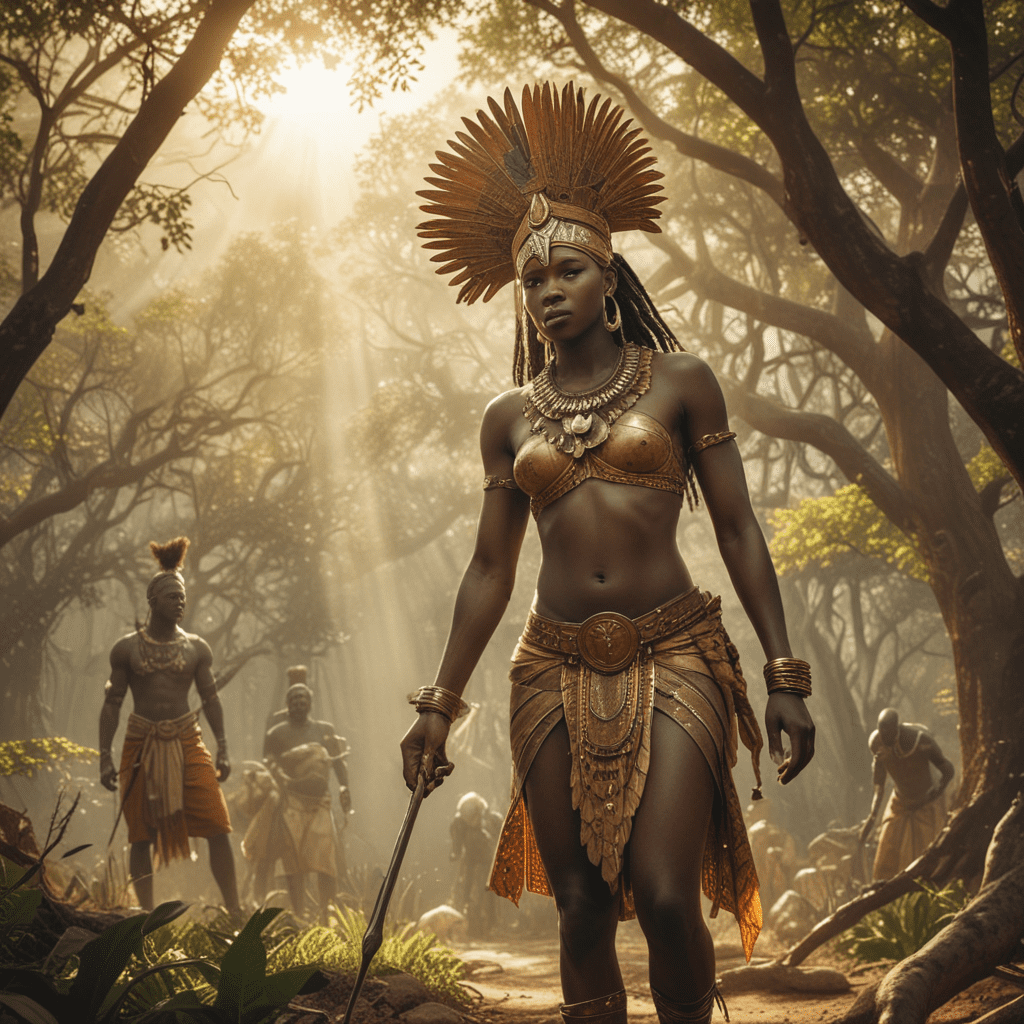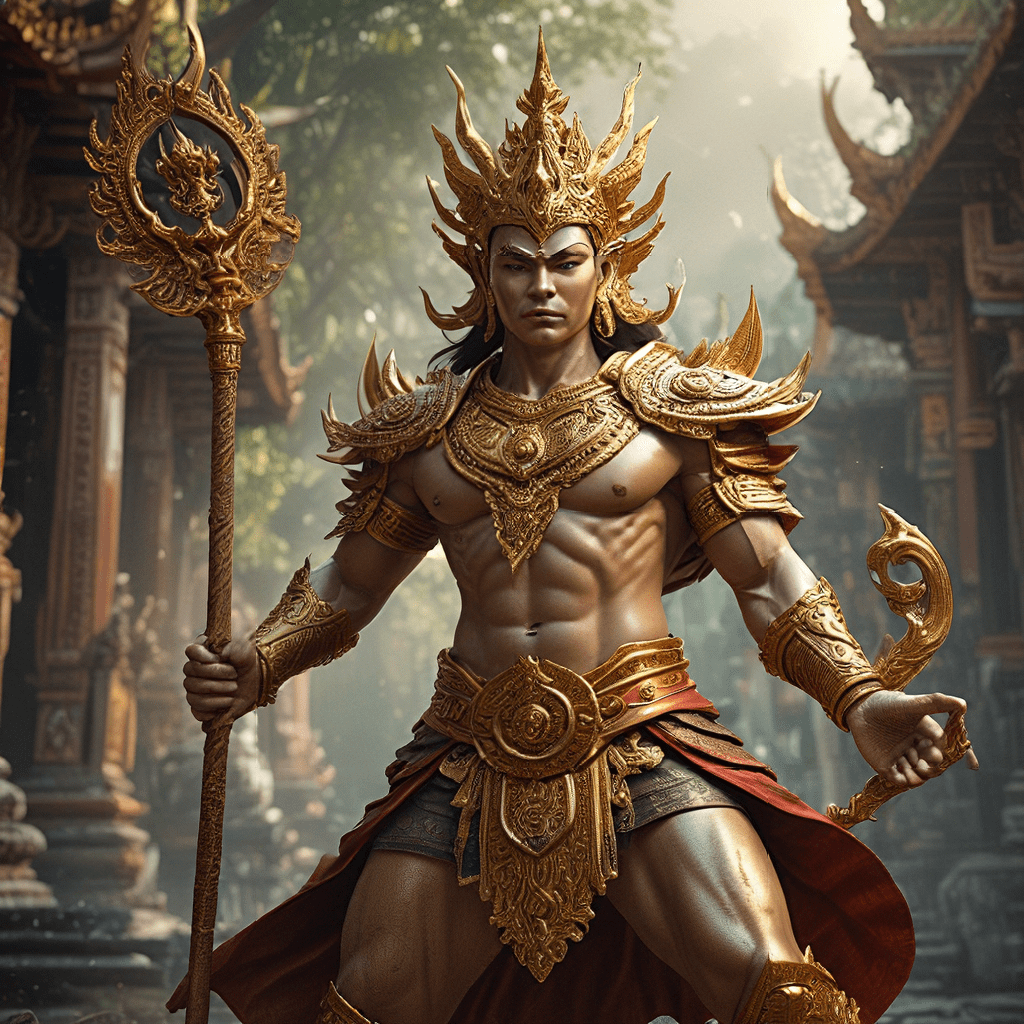The Influence of Nature in African Mythological Stories
1. Introduction: The Inherent Connection Between Nature and African Mythology
African mythology is deeply intertwined with the natural world, reflecting the profound connection between humans and their environment. Nature is not merely a backdrop but an active participant in the narratives, shaping the destiny of characters and revealing fundamental truths about life and the universe.
2. The Personification of Natural Elements in Mythological Beings
The natural elements are often personified as deities or mythological beings in African mythology. For example, Olorun, the supreme being in Yoruba mythology, is associated with the sun, while Oshun, the goddess of love and fertility, embodies the life-giving power of water. Animistic beliefs attribute consciousness and agency to all aspects of nature, fostering a deep respect for the environment.
3. Nature as a Symbol of Ancestral Wisdom
Nature is also seen as a reservoir of ancestral wisdom in African mythology. The spirits of deceased ancestors are believed to reside in trees, rocks, and other natural features, offering guidance and protection to their descendants. Sacred groves and forests are often considered places of communion with the ancestors, where elders gather to seek guidance and wisdom.
4. Animals as Guides, Messengers, and Guardians
Animals play a significant role in African mythology, serving as guides, messengers, and guardians. Totems, or animal symbols, are associated with specific clans or tribes, representing their ancestral origins and characteristics. Animals can also act as intermediaries between humans and the spirit world, conveying messages and warnings.
5. Plants as Sources of Healing, Protection, and Guidance
Plants are highly valued in African mythology for their medicinal and protective properties. Traditional healers utilize the power of plants to cure illnesses, protect against evil spirits, and aid in spiritual growth. Sacred trees, such as the baobab, are believed to possess extraordinary powers and are revered as symbols of life and renewal.
6. Mountains and Hills as Sites of Spiritual Significance
Mountains and hills are often considered sacred in African mythology, serving as places of spiritual significance and connection with the divine. The summits of mountains are believed to be gateways to the heavens, where gods and spirits reside. Rituals and ceremonies are often performed on mountaintops or hillsides, seeking blessings, guidance, and protection from the supernatural.
7. Water Bodies as Portals to the Supernatural
Water bodies, such as rivers, lakes, and oceans, are also significant in African mythology. They are seen as portals to the spirit world, where mythical creatures and deities dwell. Water is associated with purification, healing, and renewal, and rituals involving water are common in many African traditions.
8. Natural Disasters as Manifestations of Divine Anger
Natural disasters, such as earthquakes, floods, and droughts, are often interpreted as manifestations of divine anger or punishment in African mythology. These events are believed to be caused by the actions or wrongdoings of humans, and they serve as warnings or reminders to adhere to moral and ethical principles.
9. Nature's Role in Shaping the Destiny of Human Characters
Nature plays a crucial role in shaping the destiny of human characters in African mythological stories. The environment can be a source of both blessing and adversity, influencing the characters' decisions, actions, and ultimate fate. Natural phenomena, such as storms, animal encounters, and astronomical events, can provide guidance, warnings, or obstacles, shaping the characters' journeys and leading them towards their destiny.
10. The Conservation and Respect for Nature in African Mythological Stories
African mythological stories often emphasize the importance of conservation and respect for nature. The natural world is seen as a sacred and interconnected web of life, and humans have a responsibility to preserve and protect it. Hunting, farming, and other activities that impact the environment are carefully regulated in many African traditions, ensuring the balance and harmony of the ecosystem.
FAQ
What are the main themes related to nature in African mythology?
African mythology emphasizes the interconnectedness between humans and nature, the personification of natural elements, the symbolic representation of ancestral wisdom, and the role of nature in shaping human destiny.
How do animals play a role in African mythological stories?
Animals are often depicted as guides, messengers, and guardians, representing specific clans or tribes, conveying messages from the spirit world, and symbolizing ancestral origins.
What is the significance of water bodies in African mythology?
Water bodies are considered portals to the spirit world, associated with purification, healing, and renewal, and often serve as settings for rituals and ceremonies.
How does nature influence the destiny of human characters in these stories?
Natural phenomena, such as storms, animal encounters, and astronomical events, can provide guidance, warnings, or obstacles, shaping the characters' decisions, actions, and ultimate fate.
What is the importance of conservation and respect for nature in African mythological stories?
African mythological stories stress the need to preserve and protect the natural world, emphasizing the interconnectedness of life and the responsibility humans have to maintain the balance and harmony of the ecosystem.




